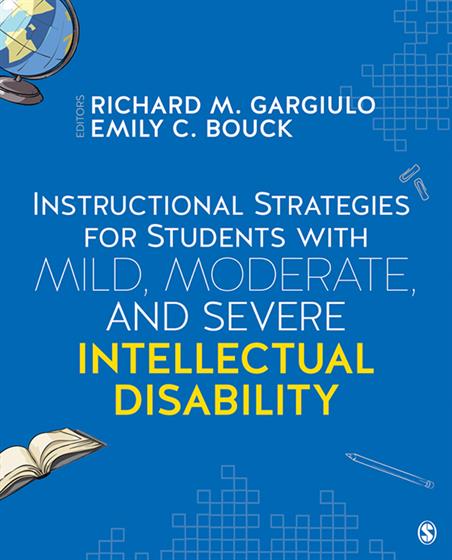Part I. Perspectives on Intellectual Disability
Chapter 1: Understanding Intellectual Disability
Historical Perspectives on Intellectual Disability
Identification and Assessment of Intellectual Disability
Evolving Definitions of Intellectual Disability
Classification of Individuals with Intellectual Disability
Prevalence of Intellectual Disability
Chapter 2: Foundational Concepts: Etiology of Intellectual Disability and Characteristics of Students with Intellectual Disability
Prenatal Causes of Intellectual Disability
Perinatal Causes of Intellectual Disability
Postnatal Causes of Intellectual Disability
Learning Characteristics of Students with Intellectual Disability
Social and Behavioral Characteristics of Students with Intellectual Disability
Chapter 3: Educational Issues Affecting Students with Intellectual Disability
Legislation Affecting Students with Intellectual Disability
Individualized Education Programs
Contemporary Educational Issues
What to Teach Students with Intellectual Disability
Where to Teach Students with Intellectual Disability
Part II. Educational Concerns Across the School Years for Students with Intellectual Disability
Chapter 4: Assessing and Evaluating Students with Intellectual Disability
What is Assessment?
Norm Referenced Tests
Criterion-Referenced Tests
Formative and Summative Assessments
Curriculum-Based Evaluations
Ecological Assessment
Assessment of Student Preferences
Assessment for Effective Instruction
Participation in Accountability Systems
Alternate Assessment
Chapter 5 Behavioral Interventions for Students with Intellectual Disability
Overview of Behavior Challenges and Approaches for Students with Intellectual Disabilities: Preschool Through Secondary
Applied Behavior Analysis
Functional Behavior Assessment
Antecedent Interventions
Addressing Challenging Behaviors in the Classroom
Chapter 6: Assistive Technology for Students with Intellectual Disability
Understanding Assistive Technology
Assistive Technology to Support Academics Across the Life Span
Assistive Technology to Support Life Skills Across the Life Span
Assistive Technology to Support Behavior Across the Life Span
Part III. Preschool Students with Intellectual Disability
Chapter 7 Teaching Academic Skills to Preschool Students with Intellectual Disability
Overview of Academic Skills for Preschool Students with Intellectual Disability
General Instructional Strategies
Academic Instruction
Chapter 8 Life Skills for Preschool Students with Intellectual Disability
Overview of Life Skills for Preschool Students
Determining What and Where to Teach
General Instructional Approaches
Components of a Life Skills Curriculum for Preschool Students
Part IV. Elementary Age Students with Intellectual Disability
Chapter 9 Teaching Academic Skills to Elementary Age Students with Intellectual Disability
Overview of Academic Skills for Elementary Age Students
General Instructional Strategies
Academic Instruction
Chapter 10 Life Skills for Elementary Age Students with Intellectual Disability
Overview of Life Skills for Elementary Age Students
Determining What and Where to Teach
General Instructional Approaches
Components of a Life Skills Curriculum for Elementary Age Students
Part V. Adolescents and Young Adults with Intellectual Disability
Chapter 11 Teaching Academic Skills to Secondary Students with Intellectual Disability
Overview of Academic Skills for Secondary Students
General Instructional Strategies
Academic Instruction
Chapter 12 Life Skills for Secondary Students with Intellectual Disability
Overview of Life Skills for Secondary Students
Determining What and Where to Teach
General Instructional Approaches
Components of a Life Skills Curriculum for Secondary Students
Chapter 13 Transition Planning for Secondary Students with Intellectual Disability
Transition Defined
An Overview of Transition Planning
Transition from Early Childhood Special Education
Transition from Elementary to Secondary Education
Transition from High School
Post School Outcomes and Services



